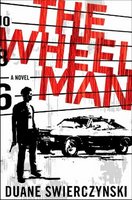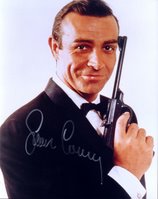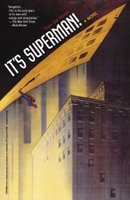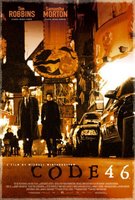Good buddy B.W. Richardson shared a list this morning of his ten favorite movies. He’s got some interesting choices. But I always have a better, maybe easier time choosing films that fall at the other end of the spectrum. So I was delighted today to find Premiere magazine’s recent list of the 20 most overrated movies of all time. Seven on the list won Best Picture Oscars, another seven were nominated for that dubious honor. Here’s Premiere’s list, accompanied by my agreements, disagreements, and snarky comments:
American Beauty (1999) Agree. I thought this smug Oscar-winner was just a bad TV movie with big name stars.
Chicago (2002) Disagree. I adore Chicago, which makes it all the more amazing that it won the Oscar.
Clerks (1994) I've never seen it. Probably never will.
Fantasia (1940) Agree. I couldn't sit still through it as a kid, and I still can't.
Field of Dreams (1989) Agree. This Best Picture nominee inspired a friend of mine to bundle up his crap and move to Oregon. I still haven’t figured that one out.
Chariots of Fire (1981) Agree. This Oscar winner was dull, dull, dull. And I don’t care if I ever hear that damn score again.
Good Will Hunting (1997) Agree. This Oscar nominee left me cold. Is anyone else out there as sick and tired of Robin Williams as I am?
Forest Gump (1994) Agree. I saw it, forgot it. It won the Oscar. Is anyone else out there as sick and tired of Tom Hanks as I am?
Jules and Jim (1962) I've never seen it. I probably should, though.
A Beautiful Mind (2001) I never saw this Oscar-winner. And I hope to successfully avoid it for years to come.
Monster’s Ball (2001) Agree. I rented it to see Halle Berry’s Oscar-winning performance. I think I liked her better in Catwoman.
Moonstruck (1987) Agree. An Oscar nominee that I barely remember.
Mystic River (2003) Agree. I wanted to blow out my brains after I saw this Oscar nominee.
Nashville (1975) Disagree. It deserved its Oscar nomination. But my favorite Robert Altman film remains his revisionist take on Philip Marlowe, The Long Goodbye (1973).
The Wizard of Oz (1939) Disagree. Only a heartless bastard can hate this Oscar nominee.
An American in Paris (1951) Disagree. An Oscar-winner, and it’s pleasant enough.
Easy Rider (1969) Disagree. Hell, I was raised on Easy Rider.
The Red Shoes (1948) I’ve never seen this Oscar nominee. Maybe I should.
2001: A Space Odyssey (1968) Disagree. To his dying day, my dad never forgave me for dragging his butt to this one. I was 13 and thought it was cool at the time. I haven’t seen it in years.
Gone With the Wind (1939) Disagree. Another Best Picture winner, it’s my wife’s all-time favorite movie. I’m kinda fond of it, too.
I think the best way to determine whether a movie is overrated is to check if it won an Oscar for Best Picture in the past three decades. To Premiere’s list, I’d add the horrible Ordinary People (1980), the bloated Gandhi (1982), the weepy Terms of Endearment (1983), the sleep-inducing Out of Africa (1985), the exhausting The Last Emperor (1987), and the almost unwatchable The English Patient (1996). Does anyone even rent these pictures nowadays?
 During some file-shuffling, I stumbled today on this wonderful rant from Larry “Brick” Pillow, who used to write voluminously for the old Libertarian Connection many years back. I admire Brick’s “back to basics” approach to anarchism.
During some file-shuffling, I stumbled today on this wonderful rant from Larry “Brick” Pillow, who used to write voluminously for the old Libertarian Connection many years back. I admire Brick’s “back to basics” approach to anarchism.

























